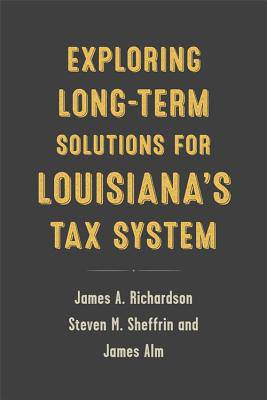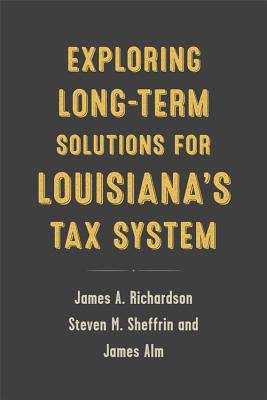
- Afhalen na 1 uur in een winkel met voorraad
- Gratis thuislevering in België vanaf € 30
- Ruim aanbod met 7 miljoen producten
- Afhalen na 1 uur in een winkel met voorraad
- Gratis thuislevering in België vanaf € 30
- Ruim aanbod met 7 miljoen producten
Exploring Long-Term Solutions for Louisiana's Tax System
James A Richardson, James Alm, Steven M SheffrinOmschrijving
The central issue debated at each successive legislative session for over a decade, Louisiana's significant fiscal problems have remained unresolved despite efforts to mitigate the state's financial woes and avoid cutting key services or resorting to stop-gap solutions. Louisiana created its current tax structure in the 1970s, with some subsequent revisions in response to new economic realities. While many developments in Louisiana's fiscal picture lie outside the state's control, other changes including shifting tax rates, shrinking the tax base, and increasing the number of exemptions, deductions, and tax credits, resulted from decisions made by the legislative body. In Exploring Long-Term Solutions for Louisiana's Tax System, James A. Richardson, Steven M. Sheffrin, James Alm, and other contributors advocate for establishing financial reforms geared to long-term change and more stable fiscal prospects.
With a focus on practicality and accessibility, the authors explore the complexities of Louisiana's economic reality and explain the state's current tax structure. In so doing, they suggest several reforms that challenge the state's use of sales tax, application of the individual income tax, approach to corporate taxation, and allocation of other taxes such as mineral revenues. Crucial for those who want to engage with their representatives, colleagues, and fellow voters on the topic of taxation, this book equips readers with timely information about policy and, more importantly, nonpartisan solutions that could secure a more prosperous future for Louisiana.Specificaties
Betrokkenen
- Auteur(s):
- Uitgeverij:
Inhoud
- Aantal bladzijden:
- 336
- Taal:
- Engels
Eigenschappen
- Productcode (EAN):
- 9780807169919
- Verschijningsdatum:
- 14/11/2018
- Uitvoering:
- Paperback
- Formaat:
- Trade paperback (VS)
- Afmetingen:
- 202 mm x 233 mm
- Gewicht:
- 435 g

Alleen bij Standaard Boekhandel
Beoordelingen
We publiceren alleen reviews die voldoen aan de voorwaarden voor reviews. Bekijk onze voorwaarden voor reviews.











